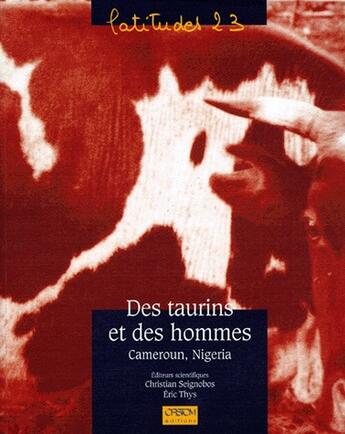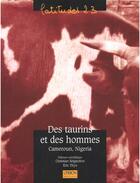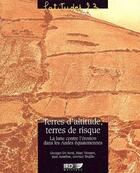-
Date de parution : 23/05/2011
-
Editeur :
Ird
-
EAN : 9782709914192
-
Série :
(-)
-
Support :
Papier
Résumé:
Au Cameroun et au Nigeria, les taurins - petits bovins sans bosse - sont très minoritaires par rapport aux zébus.
Ils présentent pourtant l'avantage D'être mieux adaptés au milieu : résistants à la mouche tsé-tsé, ils pourraient aider à la mise en valeur des zones infestées et ils apparaissent... Voir plus
Au Cameroun et au Nigeria, les taurins - petits bovins sans bosse - sont très minoritaires par rapport aux zébus.
Ils présentent pourtant l'avantage D'être mieux adaptés au milieu : résistants à la mouche tsé-tsé, ils pourraient aider à la mise en valeur des zones infestées et ils apparaissent dans certaines régions humides comme les seuls bovins aptes à favoriser l'inter-pénétration de l'agriculture et de l'élevage. Mais la relance de ces élevages, tant au Cameroun qu'au Nigeria, a toujours posé problème : l'imbrication du social, du religieux et du politique dont ils sont porteurs en fait des élevages archaïques.
Difficilement récupérables par les Sociétés villaGeoises contemporaines, et donc en voie d'extinction. La " laïcisation " du taurin et son introduction dans une économie de marché restent à faire. Cet ouvrage réunit des géographes, ethnologues, anthropologues, vétérinaires-zootechniciens. Il contribue à une meilleure compréhension du fonctionnement social des élevages, et apporte une description précise de ces animaux et de leur comportement : deux préalables nécessaires à l'identification de " nouveaux types d'éleveurs " et à la mise en oeuvre de nouvelles pratiques zootechniques et sociales.
In Cameroon and Nigerina, taurines - small humpless cattle -form a minority in comparison with zebu. Nevertheless, they are better suited to the environment. Taurines (Bos taurus) are resistant to tsetse fly and could help in the farming of infested zones and are the only cattle that can be reared it in combination with arable farming in certain wet regions However, relaunching taurine rearing in both Cameroon and Nigeria has always been a problem.
The overlapping of the social religious and political spheres in which they are involved means that rearing is archaic, difficult to adopt by contemporary village societies and is therefore disappearing, The taurine remains to be rendered "secular" and incorporated in a market economy. Geographers, ethnologies, anthropologists and veterinary/zootechny specialists have contributed to this book. It provides better understanding of the social functioning of taurine rearing and a precise description of the cattle and their behaviour.
The latter features are prerequisites for the identification of new types of animal farmers and the implementation of new zootechnical and social practices.
Donner votre avis
















